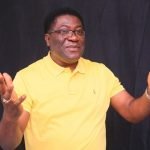Human rights are basic rights and freedom that belongs to every human from birth till death irrespective of where they are from, save for the decisions of a court of competent jurisdiction. Human Rights are centred on shared values like fairness, dignity and justice. These Values are protected in Nigeria by the Constitution of The Federal Republic of Nigeria, and a product of receive laws like the Magna Carta of 1215, The Habeas Corpus Act of 1679 and the Bill of Rights in 1689.
The atrocities melted on humans during the second world war made the protection of Human Rights an international priority and it birthed the Universal Declaration of Human Rights in 1948 after the Creation of United Nations in 1945.
Today, the abuse of human rights has become a nightmare to which Africa has been applauded as the number one player in the game.
It is a general knowledge that the right to life, Article 3 of Universal Declaration of Human Rights and Chapter 4 section 33 of the 1999 Constitution of the Federal Republic of Nigeria, and the right to personal liberty, Article 9 Universal Declaration Of Human Rights, and Chapter 4 section 35 of the 1999 constitution of the Federal Republic of Nigeria is not absolute and can be restricted by a court under some given circumstances, but its more appalling that majority of people don’t know when their rights are being infringed.
The first amendment (i) the United States constitution for example prevents congress from enacting laws prohibiting the free exercise of religion, or abridging the freedom of speech, or Freedom of the Press or the right to peaceful Assembly or to petition a governmental redress of greviances.
It is noteworthy that while developed Nations who are former colonies to most African countries, and whose laws serves as part of the received laws protects the rights of their citizens, Under developed countries like Nigeria for example are still struggling to identify which Rights to protect and which to be restricted, taking ignorance of its citizens as an advantage hidding under the covers of keeping sanity.
In Nigeria, the government restrictions to speech related to libel, slander, sedition, fighting words, classified information, copyright violations, political correctness, public security, and nuisance. Whether these restrictions can be justified under the harm principle depends on whether influencing a third party to a second party constitutes harm.
Even though Article 19 of Universal Declaration of Human Rights recognized the freedom of expression, it is not practiced in most African countries as many journalists are behind bars for speaking against the government.
When individuals enjoy the freedom to express themselves, the society experiences democracy. Lack of freedom of expression is a cankerworm that has eaten deep into the Nigerian systems and its affecting the already marginalised and minority groups in the society. Absence of this right is the non inclusion of people participating in the affairs of the society.
Its true that free speech has limits and exceptions but these exceptions must be individually justified.
Freedom of speech and access to information are the pillars of a healthy society. A Nation that respects individual rights to freedom of expression is a Nation on the journey to Democracy and economic prosperity.
– Ifeoma Ogbe

